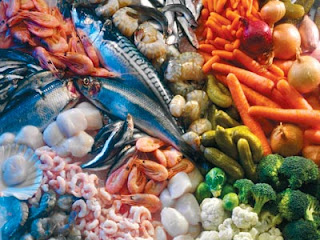Blogs >> Technology >>
An overview of Indian Food Processing Technology
Green revolution has transformed India from a land of shortage to a
land of surplus. India is presently the world's second largest producer
of food, and has the potential of being the biggest with developing
food and agricultural sector. Growing economy, surplus food and
changing lifestyle has shifted the consumption pattern, from cereals to
more varied and nutritious diet of fruit and vegetables, milk, fish,
meat and poultry products. This gradual progression has given rise to
the food processing industry in India. The food processing sector in
the country with its vast potential has emerged as one of the major
driver of economic growth and is often hailed as a sunrise industry.
Interestingly, the fact is while the country’s GDP growth rate had increased from 3.5% in 2002-03 to 9% in 2006-07; the food processing sector has grown from 7% to 13.1% during the same period. However, market experts are of the opinion that in future, the food products is going to contribute majorly towards India’s GDP growth.
India’s food processing sector primarily covers fruit and vegetables; meat and poultry; dairy products, alcoholic beverages, fisheries, plantation, grain processing and other consumer product groups like confectionery, chocolates and cocoa products, Soya-based products, mineral water, high protein foods etc.

India presently accounts for less than 1.5% of international food trade, which indicates that both investors and exporters are yet to gain more from the Indian food processing industry. The industry requires about Rs 29,000 crore in investment over the next five years to create necessary infrastructure, state-of-the-art-technology and expand production facilities to match the international quality and standards. To promote the sector, the Indian government had taken several steps such as de-licensing of the sector, several duty and tax relief, financial assistance for infrastructure building and setting up of food processing units.
Interestingly, the fact is while the country’s GDP growth rate had increased from 3.5% in 2002-03 to 9% in 2006-07; the food processing sector has grown from 7% to 13.1% during the same period. However, market experts are of the opinion that in future, the food products is going to contribute majorly towards India’s GDP growth.
India’s food processing sector primarily covers fruit and vegetables; meat and poultry; dairy products, alcoholic beverages, fisheries, plantation, grain processing and other consumer product groups like confectionery, chocolates and cocoa products, Soya-based products, mineral water, high protein foods etc.

India presently accounts for less than 1.5% of international food trade, which indicates that both investors and exporters are yet to gain more from the Indian food processing industry. The industry requires about Rs 29,000 crore in investment over the next five years to create necessary infrastructure, state-of-the-art-technology and expand production facilities to match the international quality and standards. To promote the sector, the Indian government had taken several steps such as de-licensing of the sector, several duty and tax relief, financial assistance for infrastructure building and setting up of food processing units.
|
|
